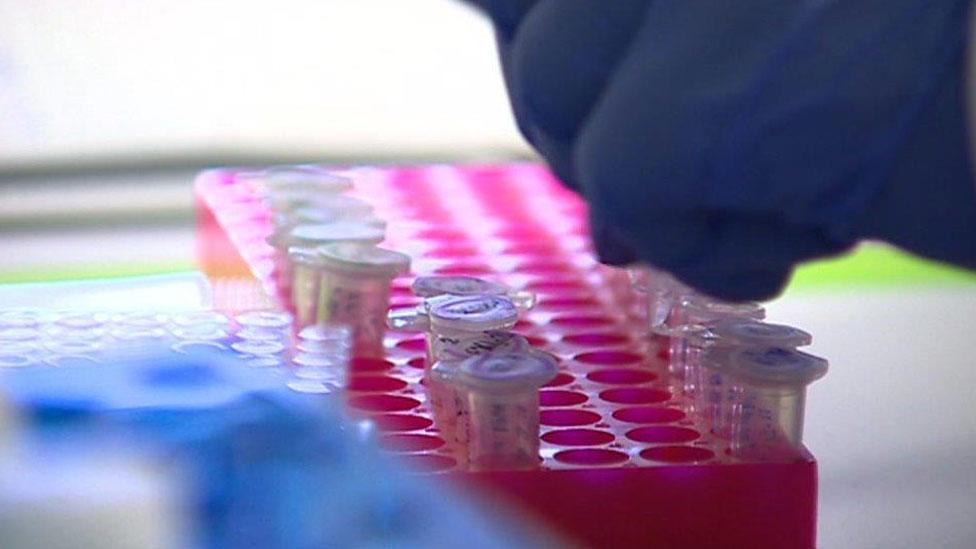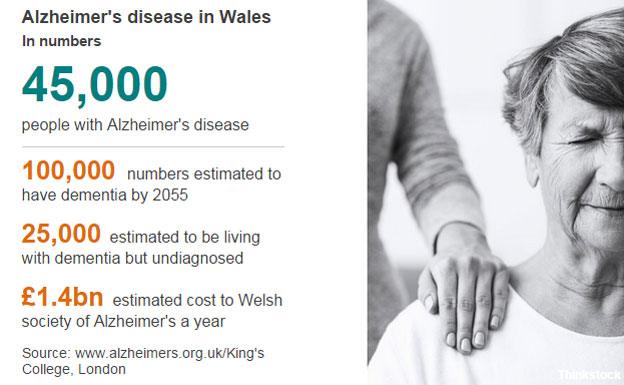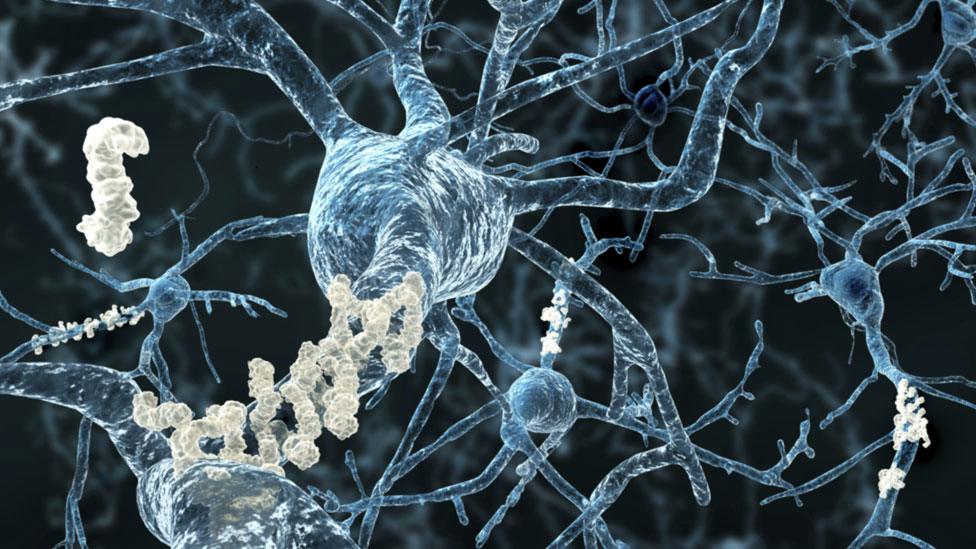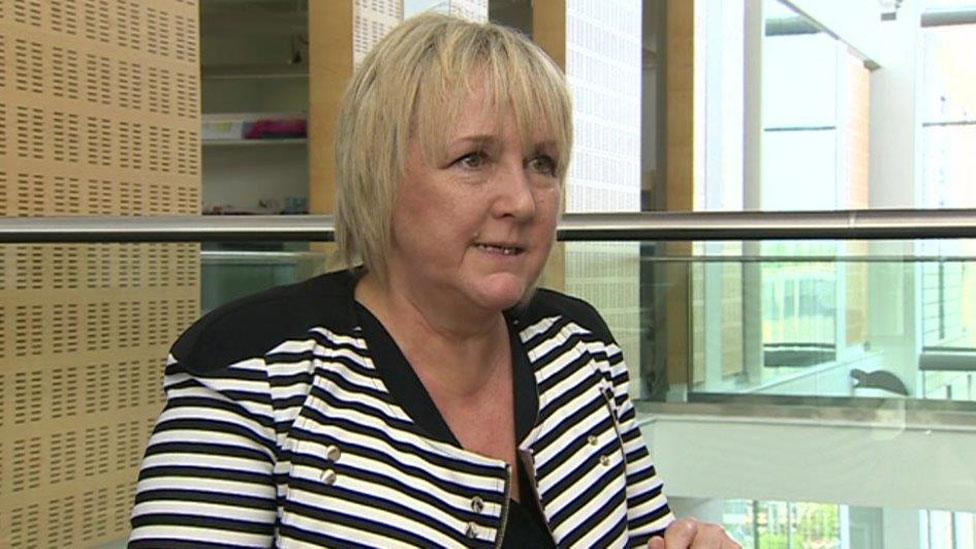Cardiff University dementia genes study breakthrough hope
- Published

Cardiff University has led research with teams in France and the United States
Scientists in Cardiff say they are on the verge of an "enormously exciting" breakthrough in understanding the causes of Alzheimer's disease.
Their study will suggest the body's own immune system could be attacking brain cells of those genetically susceptible.
It builds on global studies identifying 30 genes linked to the disease.
About 45,000 people in Wales are thought to be living with dementia, with Alzheimer's the most common form of the illness.
For years, scientists have been looking at a small number of genes which apply to very rare forms of Alzheimer's but they have been trying to find the ones which apply to more common forms of the disease.
To do that, they need to study of the genes of far greater numbers of people.
Forty research groups led by scientists in Cardiff, France and the United States have been working more closely together and have now pooled a worldwide database of 90,000 samples.

"We're about to submit a paper that is enormously exciting and which I think will really change, without a doubt, what we think of Alzheimer's disease going forward," Professor Julie Williams, head of the research team at Cardiff University, said.
"Over the last five or six years we've been successful in identifying 30 genes that increase - or decrease - your risk for Alzheimer's disease.
"Now this is telling us what some of the major components in disease development are. It's new, it's exciting; it's a different perspective on what Alzheimer's disease is."

Neurons with amyloid plaques in Alzheimer's disease
A lot of dementia research over the last two decades has been looking at a few elements in brain behaviour such as amyloid plaques - the tangles that occur within the neurons.
Prof Williams said now they were looking at something different - backed by genetics - which is the immune response in those people who go on to develop Alzheimer's disease.
"Our immune response is about how the brain keeps us safe, it's about getting rid of things which might invade the brain, getting rid of nerve cells and bits that go wrong," she said.
"It has a very complicated set of activities and some of those are actually, I think, dismantling the brain at its roots."
One of these involves a pruning function which is quite normal and helps our brains develop as we grow.
But now scientists believe it is triggered again in some people as they get older and actually eats away at synapsis [connections between nerve cells] and brain cells.
Researchers will also look at how factors such as lifestyle and exercise could play a part.
"If we can understand how that happens we can then possibly have preventive treatments or therapies for people who have the disease," Prof Williams said.

HOW SUPER SCANNERS WILL HELP RESEARCH
Dr Claudia Metzler-Baddeley explains how Alzheimer's disease looks in the brain
Cardiff University's range of scanners at its new £44m brain imaging research centre Cubric will be used in the research.
It includes Europe's most powerful brain scanner - which has been described as the "Hubble telescope of neuroscience".
One research project is targeting 180 people in the Cardiff area, aged between 40 to 60, to help study the genetic risks of Alzheimer's and how issues like lifestyle and obesity interact.
Volunteers will be given MRI scans as well as having blood and saliva samples taken.
Cardiff University is also looking for volunteers for research into early onset dementia.


Prof Julie Williams would like to see a million people in Wales signed up to help with research of diseases within the next 10 years
Gavin Watkins talks about his five years living with dementia - after being diagnosed at the age of 53
Meanwhile scientists in Bangor have developed new ways of helping individuals develop new skills or re-learn skills they have lost, and lead projects allowing patients to create visual art.
They are looking into ways to communicate with patients who have lost the ability to speak.
Prof Williams said: "It's great people are living longer, it's something to celebrate but it means there will be more disease out there and Alzheimer's and dementia will be up at the top of that list unfortunately."
- Published16 May 2016

- Published16 May 2016

- Published6 May 2016
